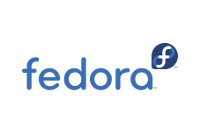The Friday Five is a weekly Red Hat® blog post with 5 of the week's top news items and ideas from or about
Red Hat and the technology industry. Consider it your weekly digest of things that caught our eye.


GOOD READ:
Fortune - Red Hat CEO on Microsoft, Google, and Cutting Edge Software
Open source basically has become a place where user-driven innovation happens in software. Because open source is where innovation is coming from and is what developers are consuming, it forces vendors to participate. Now for traditional businesses, there's a difficult problem in that there are over a million open source projects. Some of those have companies behind them and some don't. The big issue is when you want to run something in production. One example is Linux. You're running your SAP application on Linux and that's great, but now there's a bug that needs to get fixed, and the open source community fixes that on the brand new version of Linux. If you're running on a three-year old version of Linux, nobody's looking at that version for a bug or a security hole, but you don't want to re-integrate and re-test your SAP system every time there's a new version. That's what Red Hat does. We have thousands of engineers, and that's what they do. They take these old versions of Linux, and if there's a bug or there's a security update, they patch it and fix it without ever breaking their compatibility.


IN THE NEWS:
Fedora 25 Now Generally Available
The Fedora Project, a Red Hat, Inc., sponsored and community-driven open source collaboration, today announced the general availability of Fedora 25, the newest release of the fully-open Fedora operating system. As with previous releases, Fedora 25 comprises a set of base packages that form the foundation of Fedora's three distinct editions: Fedora 25 Workstation, Fedora 25 Server and, replacing Fedora Cloud, Fedora 25 Atomic Host. New in Fedora 25 is the addition of Fedora 25 Atomic Host as one of Fedora's three editions, replacing Fedora Cloud. While a Fedora Cloud Base image will continue to be available for users seeking to run workloads on a general purpose host, Fedora Atomic Host provides an optimized host designed to create and deploy container-based workloads.


RECOMMENDED READING:
TechRepublic - How Red Hat aims to make Kubernetes boring...and successful
Many enterprise software companies try to jazz up their wares with fancy buzzwords (Cloud! Machine learning! Augmented reality!). Not Red Hat. Red Hat plays a very different game. Instead of trying to make software exciting, its stated goal is to make software very, very boring, as Red Hat Chief ARM Architect Jon Masters told a crowd at Supercomputing 2016. By "boring" Masters didn't mean uninteresting. Instead, as he went on to explain, Red Hat "make[s] stuff that just works." This message plays well to risk-averse CIOs. Red Hat aims to bring the same boring "just works" story to the still-nascent world of containers which, ironically, may be the most exciting thing to ever happen to the hype-heavy world of cloud-native applications. Not that Red Hat is calling Kubernetes "boring." Instead, they're calling it "Enterprise-Ready," which is basically the same thing. As the no. 2 contributor to Kubernetes (behind Google), and the #1 enterprise software contributor, Red Hat has put itself in a good position to guide the future of Kubernetes, making it ever more enterprise-ready.


CUSTOMER SUCCESS:
A.IX Capital launches financial services using Red Hat OpenShift
Financial technology startup A.IX Capital needed an affordable cloud platform to support development of its robo-advisor application, a solution that provides algorithm-based, automated investment strategies for professional and private investors. To support this innovation, the company chose to take advantage of the Red Hat OpenShift Startup Program to deploy Red Hat OpenShift Online with no initial cost. With OpenShift Online, A.IX Capital quickly and easily built a stable and scalable system. As a result, its IT team can focus on innovating to grow its core business, instead of spending time on routine IT management.


GOOD READ:
Understanding Linux containers
Linux containers are technologies that allow you to package and isolate applications with their entire runtime environment–all of the files necessary to run. This makes it easy to move the contained application between environments (dev, test, production, etc.) while retaining full functionality. Linux containers help reduce conflicts between your development and operations teams by separating areas of responsibility. Developers can focus on their apps and operations can focus on the infrastructure. And, because Linux containers are based on open source technology, you get the latest and greatest advancement as soon as they're available. When your business needs the ultimate portability across multiple environments, using containers might be the easiest decision, ever.
Sull'autore
Red Hat is the world’s leading provider of enterprise open source solutions, using a community-powered approach to deliver high-performing Linux, cloud, container, and Kubernetes technologies.
Ricerca per canale
Automazione
Le ultime novità sulla piattaforma di automazione che riguardano la tecnologia, i team e gli ambienti
Intelligenza artificiale
Aggiornamenti sulle piattaforme che consentono alle aziende di eseguire carichi di lavoro IA ovunque
Servizi cloud
Maggiori informazioni sul nostro portafoglio di servizi cloud gestiti
Sicurezza
Le ultime novità sulle nostre soluzioni per ridurre i rischi nelle tecnologie e negli ambienti
Edge computing
Aggiornamenti sulle piattaforme che semplificano l'operatività edge
Infrastruttura
Le ultime novità sulla piattaforma Linux aziendale leader a livello mondiale
Applicazioni
Approfondimenti sulle nostre soluzioni alle sfide applicative più difficili
Serie originali
Raccontiamo le interessanti storie di leader e creatori di tecnologie pensate per le aziende
Prodotti
- Red Hat Enterprise Linux
- Red Hat OpenShift
- Red Hat Ansible Automation Platform
- Servizi cloud
- Scopri tutti i prodotti
Strumenti
- Formazione e certificazioni
- Il mio account
- Risorse per sviluppatori
- Supporto clienti
- Calcola il valore delle soluzioni Red Hat
- Red Hat Ecosystem Catalog
- Trova un partner
Prova, acquista, vendi
Comunica
- Contatta l'ufficio vendite
- Contatta l'assistenza clienti
- Contatta un esperto della formazione
- Social media
Informazioni su Red Hat
Red Hat è leader mondiale nella fornitura di soluzioni open source per le aziende, tra cui Linux, Kubernetes, container e soluzioni cloud. Le nostre soluzioni open source, rese sicure per un uso aziendale, consentono di operare su più piattaforme e ambienti, dal datacenter centrale all'edge della rete.
Seleziona la tua lingua
Red Hat legal and privacy links
- Informazioni su Red Hat
- Opportunità di lavoro
- Eventi
- Sedi
- Contattaci
- Blog di Red Hat
- Diversità, equità e inclusione
- Cool Stuff Store
- Red Hat Summit

